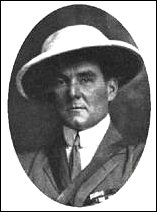That's what we called them in graduate theory seminars, "Dead, White, European Males." And most folks would prefer to stay well away from from the thick tomes of analysis and argument they produced. But sometimes it's useful to remember why they became "founding figures" in the first place.
In the current Prospect Magazine (UK), Michael Prowse writes about the joys of discovering Emile Durkheim, a founding figure in both sociology and British social anthropology:
A few years ago I was planning a book on market capitalism—one that would demonstrate its inestimable virtues. But in a moment of candour it occurred to me that I had not exposed myself sufficiently to the arguments of the market's critics. In particular, I had not read any sociologists. So, reluctantly, I bought some works by Emile Durkheim, the French founding father of modern sociology. They would be tedious and imprecise, I feared, but they could surely do me no lasting harm. A few afternoons in Durkheim's company would salve my conscience without altering my convictions.
I was wrong. Reading Durkheim helped to initiate a process of intellectual change that left me more sensitive to the market's failings than most of my contemporaries. When I encountered him, sociology had already been out of fashion for at least two decades. So it was hardly surprising that few shared my enthusiasm for Durkheim's tracts. Moreover, I would be the first to concede that some sociology is verbose and poorly argued. Sociology is still regarded as an undemanding subject at school and university, so it probably attracts some undisciplined minds.
But Durkheim was not just any sociologist. Most budding intellectuals would concede the desirability of a passing familiarity with the ideas of Plato in philosophy, Locke in political theory and Keynes in economics. They should add Durkheim to their reading lists. And they should not fear thickets of impenetrable prose: he writes with the same lucid charm as the British empiricists. He is occasionally dogmatic, but he always backs his claims with rational arguments.
Subscribe to:
Post Comments (Atom)

No comments:
Post a Comment